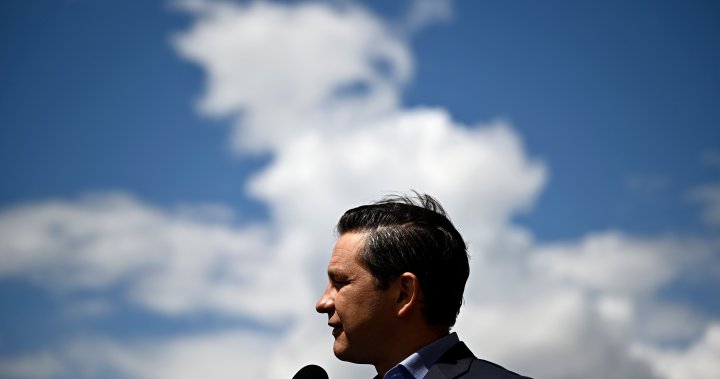Ambassadors around Ottawa are seeking clues about the foreign policy of the Conservative Party as leader Pierre Poilievre remains tight-lipped about his approach to international affairs if he were to become prime minister. Diplomats at several embassies in Ottawa express uncertainty about whether the Conservatives would uphold global climate commitments and continue to strongly support Ukraine. However, they only disclose their concerns anonymously due to the potential risk of compromising diplomatic relations. Poilievre is said to be focusing on his domestic economic agenda and leaving the heavy lifting on foreign policy to others, according to Garry Keller, vice-president of lobby firm StrategyCorp. Embassies often seek out party leaders of all parties, and opposition leaders are usually harder to reach until an election is drawing near. Foreign policy issues aren’t typically a major factor in how Canadians vote, as they tend to prioritize top-of-mind issues such as housing and healthcare. However, Chris Alexander, a former Conservative immigration minister, argues that given the impact of global forces like conflict and climate change, Poilievre should provide more information on his foreign policy stance. Since becoming leader nearly a year ago, Poilievre has focused on diaspora communities in Canada, tailoring some foreign policy aspects to specific groups. He has promised a direct flight from Canada to Amritsar, an Indian city significant to the Sikh faith, and has also emphasized a tougher stance on certain foreign actors, such as designating Iran’s Islamic Revolutionary Guard Corps a terror group. He has left other major foreign policy topics to key MPs in his party. Conservative foreign affairs critic Michael Chong has criticized the Liberal government for being weak on combating foreign interference, while foreign aid critic Garnett Genuis has focused on eliminating slave labor from supply chains and addressing allegations of Uyghur mistreatment in China. Deputy leader Melissa Lantsman has hinted at broader Tory priorities, including a foreign policy based on democracy, freedom, human rights, and the rule of law, as well as a focus on energy security and Arctic defense. The Conservative Party has also pushed for legislation to allow the CRTC to ban television channels from sanctioned countries more easily and to regularly report on prisoners of conscience abroad. Poilievre’s office states that he aims to restore Canada’s reputation through common sense, arguing that the current Prime Minister, Justin Trudeau, weakened the country’s global standing. However, European ambassadors in Ottawa are concerned about the lack of clarity regarding Canada’s existing climate commitments and the Conservative Party’s stance on Ukraine, particularly given Harper’s comments about closer ties with the Hungarian government and negotiations with Russia. Poilievre has not directly mentioned the Ukraine invasion in the House of Commons, although he has condemned Russia’s actions in news releases and at a rally. Former Conservative minister Alexander believes that the Tories have the opportunity to shine on foreign policy topics if Poilievre would seize the moment and present a stronger narrative on issues such as China’s influence and Canadian energy and climate policy. He believes the current Liberal government leaves several openings for the Conservatives to differentiate themselves in terms of diplomacy, military commitment, trade, and human rights in the Pacific.

National Ambassadors Seek Clues About Poilievre’s Foreign Policy Direction
Denial of responsibility! Swift Telecast is an automatic aggregator of the all world’s media. In each content, the hyperlink to the primary source is specified. All trademarks belong to their rightful owners, all materials to their authors. If you are the owner of the content and do not want us to publish your materials, please contact us by email – swifttelecast.com. The content will be deleted within 24 hours.
